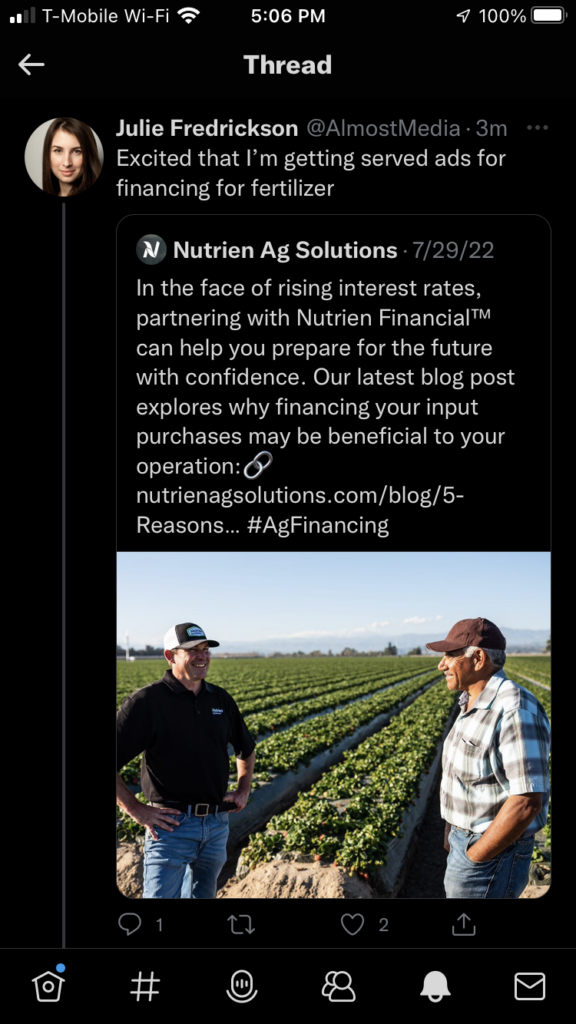Capitalism has largely been a triumph of hierarchy as an organizing mechanism. As we evolved from mercantilism into corporatism, appointing and holding accountable a single point of failure in a chief executive officer has become an effective shortcut for managing complexity when deploying capital. Leadership is responsible for the outcome.
The aphorism “failure is an orphan but success has many fathers” abuts against the reality that while we love to lavish praise upon executives, monarchs and other singular nexuses of responsibility it’s often not reflected in reality. Our bias in the post-industrial revolution has been towards leadership via individual even as post Enlightenment values valorize democracy and community participation. It’s been a tension for since the Industrial Revolution. America exemplifies this as the country most committed to both participatory federalism and corporate capitalism.
I am particularly interested in this tension as I believe we may be on the crux of larger organizational needs and are seeing them begin to coalesce in crypto. As decentralized autonomous organizations, or DAOs, make an attempt to become the new corporate governance structure in Web3, it seems worth studying the question of whether leadership is a singular or collective exercise for humans.
What does the historical and anthropological record have to say about how we organize? What are we evolved to prefer and are we capable of evolving further?
The bias we operate with now is great man theory. But what if that is not just wrong but not even the predominant form of human organization through history? Critics of cooperation might do well to explore this in particular.
I came across a Rob Henderson blog post which is an extended overview of a piece of sociology Hierarchy in the Forest: The Evolution of Egalitarian Behavior by the UCLA anthropologist Christopher Boehm. According to Rob’s post, the main question of this work is whether humans are by nature hierarchical or egalitarian. And it turns out our hunter gatherer forefathers were mostly egalitarian. The bulk of our history is egalitarian.
The anthropological record along with research on extant modern hunter-gatherers suggests that for most of human history we have been egalitarian, defined as “status equivalency among the decision-makers of a group.”
Rob Henderson reviews Hierarchy in the Forest
If you extrapolate this into a modern corporate context, the C-Suite or executive team, or perhaps even the founding team, are roughly the status equivalent decision makers. Maybe there is a first among equals in the CEO or founder but they can, in theory, be replaced by a board. But what if instead of a C-corporation you are managing a cooperative like a DAO? What then?
Apparently we humans are rather good at maintaining status equivalence. Richard Wrangham’s Goodness Paradox discusses how humans have self domesticated to avoid too much resource and power aggregation.
Over time, early humans eliminated those who were overtly aggressive. They killed or ostracized upstarts hungry for power; men with aggressive political ambitions. Other men would quietly organize to commit collective murder of troublesome male
Rob Henderson on Goodness Paradox
Moral communities evolve and punish those who deviate from acceptable standards. If you are too ambitious as an individual we swoop in as a species. It seems a bit miraculous in that light that we live in an era of kleptocracy and power consolidation given our tendency to murder upstarts. Great man theory isn’t all that sustainable. Or is it? Perhaps it’s that we asset influence obliquely. I’d wager any woman would agree.
Oftentimes, headmen display “self-effacing” behavior. Headmen and informal leaders usually obtained their roles through talent in hunting or warfare, storytelling ability, or congeniality. They rarely assert direct authority.
Rob Henderson on Boehm
If indirect authority is a sustainable organizational preference in the anthropological record, perhaps corporations are more amenable to reconstruction as DAOs (decentralized autonomous organizations) through the principle of status equivalence.
The autonomous part seems the trickiest, but decentralized authority inside tribal organizations are at least recognizably human. If as a group we disliked a status or resource hungry “great man” we leaned on the leadership preferences of status equivalent equals and forced you out.
I see no reason we can’t write in similar parameters into a smart contract as an experiment. At the first hint of a rug pull let the burning begin! We are already seeing political battles for resource allocation inside bigger organizations like MakerDAO. Crypto may be a worthy space for experienced leadership to show that figureheads like CEOs or founders are not the crucial lynchpin for progress and stability we believe.
Which would be quite a balm to me personally as I’m deeply skeptical of authoritarianism as a solution for our technical and social problems. I’d much rather we explore the wisdom of past tribal knowledge to guide us than look to a mythical great man to save me.

